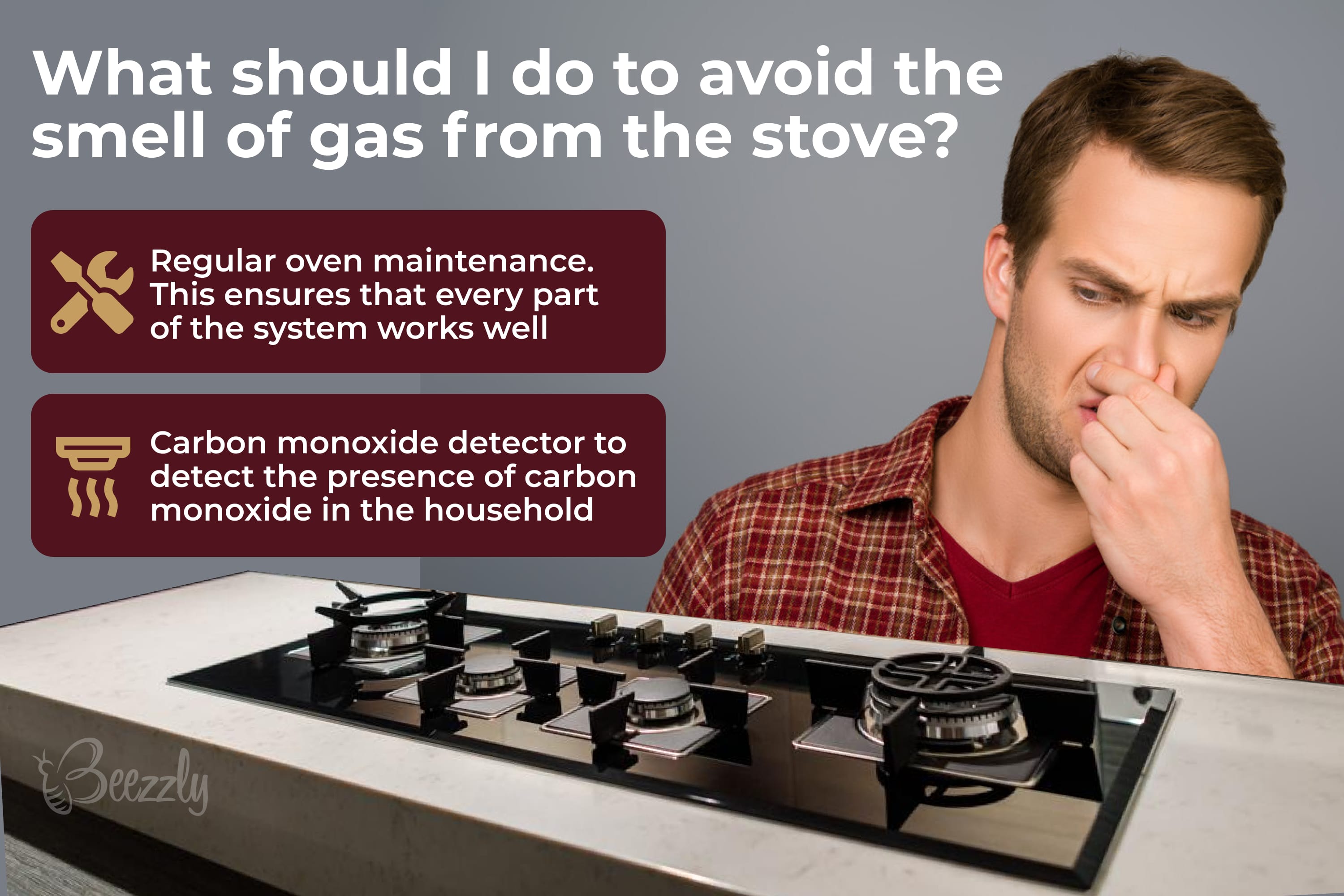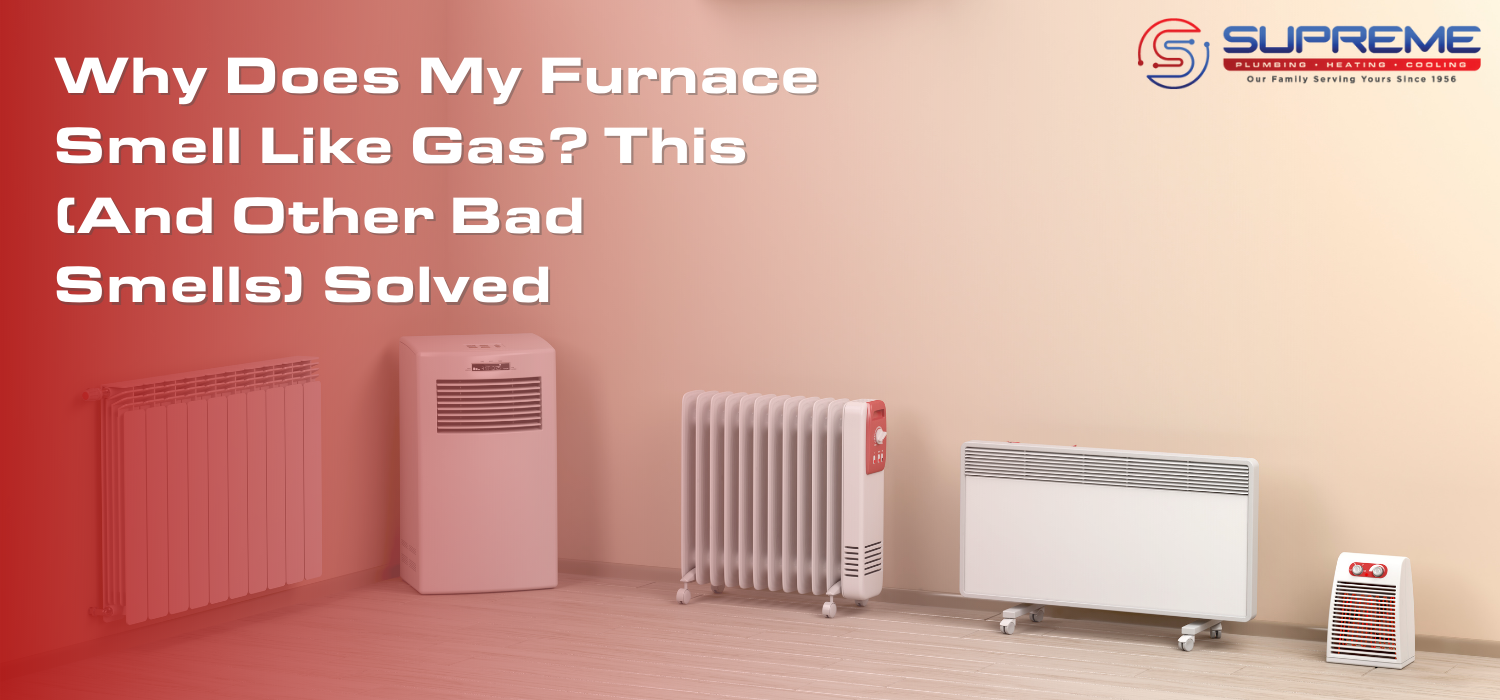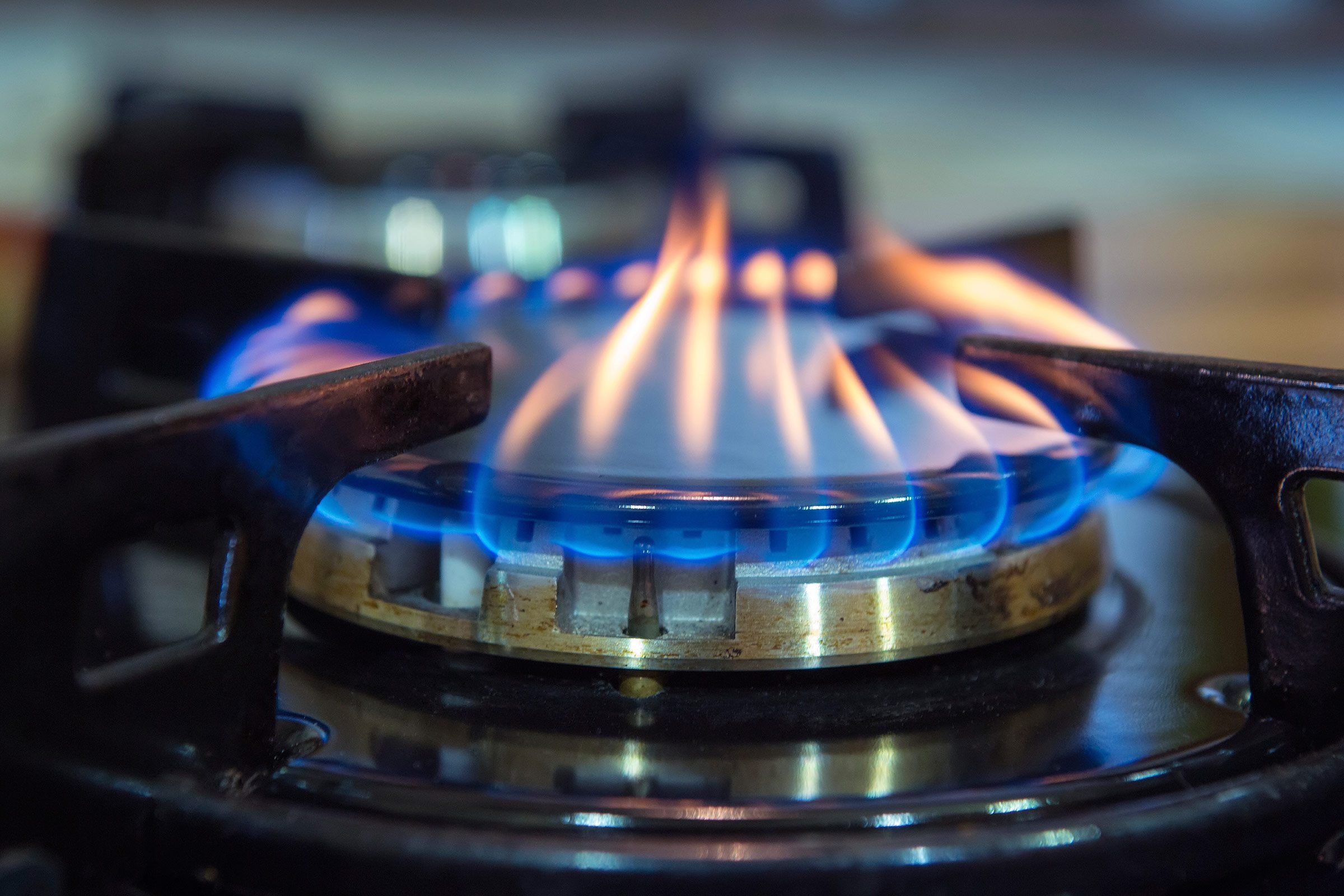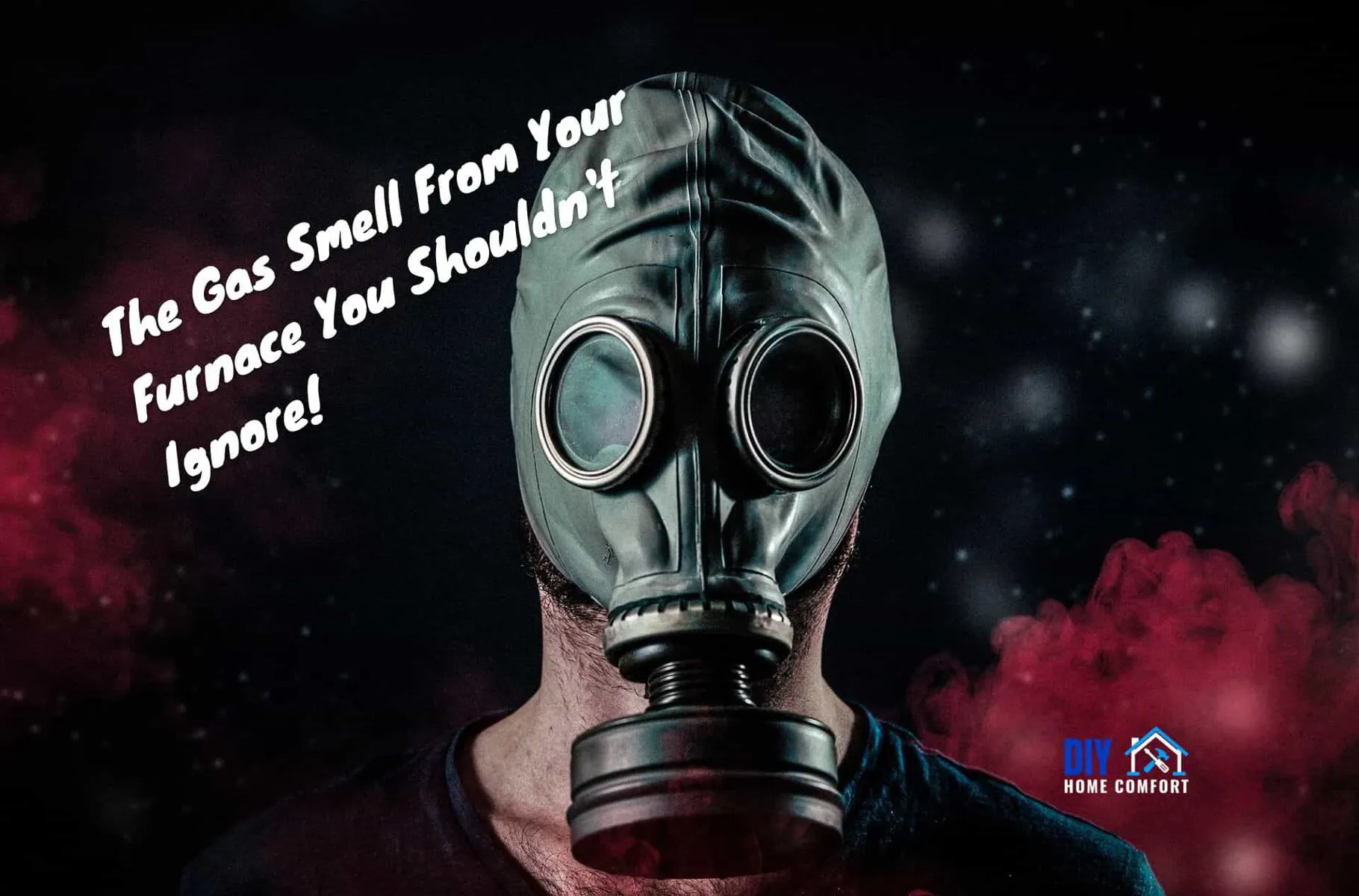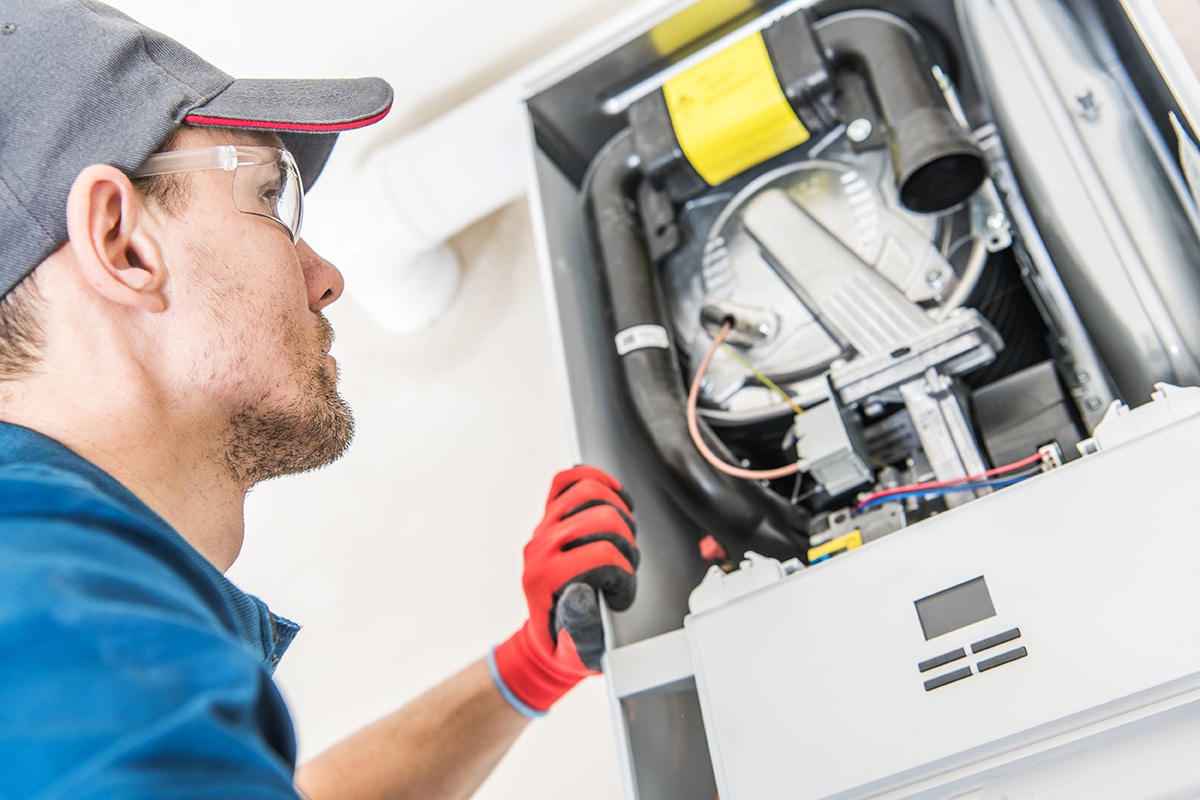Gas Smell From Furnace

Many homeowners experience a concerning problem: a gas smell emanating from their furnace. This isn't just unpleasant; it can indicate a potentially dangerous situation. This article provides a step-by-step guide to help you diagnose the issue and, in some cases, implement safe, simple fixes. However, it's crucial to understand when professional help is absolutely necessary.
Understanding the Gas Smell
First, it's important to clarify what a gas smell actually smells like. Natural gas is naturally odorless. Gas companies add a chemical called mercaptan to give it that distinctive, rotten-egg or sulfur-like smell. This is a safety measure, allowing you to detect leaks. The intensity of the smell can vary, from a faint whiff to a strong, overwhelming odor.
Immediate Actions – Safety First!
If you detect a strong gas smell, prioritize safety:
- Evacuate Immediately: Get everyone (including pets) out of the house.
- Do Not Use Electrical Switches: Turning lights on or off, or using any electrical appliance, could create a spark and ignite the gas.
- Do Not Use Your Phone Inside: The battery can also create a spark. Use a neighbor's phone or go outside to call.
- Call the Gas Company or 911: Report the leak from a safe distance.
- Do Not Re-enter the House: Until the gas company or fire department says it's safe.
Troubleshooting a Mild Gas Smell
If the gas smell is mild and intermittent, and you've ruled out an emergency, you can proceed with careful troubleshooting. Remember, if you are ever uncomfortable or unsure, call a qualified HVAC technician.
Step 1: Check the Obvious
Before delving into the furnace, check these simple things:
- Pilot Light (If Applicable): Some older furnaces have a pilot light. If the pilot light is out, unburned gas can be released. Look for instructions on relighting the pilot light on the furnace itself. Follow these instructions precisely. If you can't relight it, or it goes out repeatedly, call a professional.
- Other Gas Appliances: Check your stove, water heater, and any other gas appliances for leaks. Sometimes the smell isn't coming from the furnace at all.
- Recent Work: Has anyone recently worked on your gas lines or appliances? A loose connection could be the culprit.
- Outdoor Odors: Sometimes, the gas smell isn't even inside your house. Construction or utility work in your neighborhood could be releasing gas that's drifting in.
Step 2: Inspect the Furnace Area
Now, carefully inspect the area around the furnace:
- Visual Inspection: Look for any obvious signs of damage to the gas lines or connections near the furnace. This includes corrosion, rust, or loose fittings. Do not touch anything if you see damage. Call a professional immediately.
- Listen Carefully: Listen for a hissing sound near the gas lines or connections. This could indicate a leak.
- Smell Test (Cautiously): Get close to the gas lines (without touching them) and carefully try to pinpoint the source of the smell. This requires caution and a discerning nose.
Step 3: The Soapy Water Test (If You Feel Comfortable)
Only proceed with this step if you feel comfortable and confident. If not, skip to the next section on when to call a professional.
The soapy water test can help you locate small leaks. You will need:
- Dish soap
- Water
- A spray bottle or small brush
- Mix a Solution: Mix a solution of dish soap and water in the spray bottle or a small container.
- Apply to Connections: Spray or brush the soapy solution onto the gas line connections near the furnace (joints, fittings, valves).
- Watch for Bubbles: If there's a gas leak, bubbles will form at the point of the leak.
- Mark the Leak: If you find a leak, mark it clearly.
- Turn Off the Gas: Locate the gas shut-off valve near the furnace and turn it off. This is usually a lever that is parallel to the pipe when open and perpendicular when closed.
- Call a Professional: Even if you find a small leak, you should still call a qualified HVAC technician or plumber to repair it.
Step 4: Check the Furnace Filter
While a dirty filter won't directly cause a gas leak, it can indirectly contribute to a gas smell. A clogged filter restricts airflow, causing the furnace to work harder and potentially overheat. This, in turn, can sometimes lead to incomplete combustion and a faint gas odor, especially during startup.
- Locate the Filter: The furnace filter is usually located in a slot near the blower motor.
- Inspect the Filter: Remove the filter and check for dirt and debris.
- Replace the Filter: If the filter is dirty, replace it with a new one of the correct size and type.
Step 5: Possible Causes other than Leak
- New Furnace: If you recently installed a new furnace, a slight burning smell is normal during the first few hours of operation. This is due to oils and residues burning off the metal components. However, this smell should dissipate quickly. If it persists or smells strongly of gas, call the installer.
- Dust and Debris: Accumulated dust and debris inside the furnace can sometimes create a burning smell that might be mistaken for gas. A professional cleaning can resolve this.
- Incomplete Combustion: Problems with the burner or gas valve can cause incomplete combustion, resulting in a faint gas smell and reduced heating efficiency. This requires professional diagnosis and repair.
When to Call a Professional – No Exceptions!
There are situations where you must call a qualified HVAC technician or licensed plumber immediately. Do not attempt DIY repairs in these cases:
- Strong Gas Smell: As mentioned earlier, a strong or persistent gas smell is an emergency.
- You Suspect a Leak You Can't Find: If you smell gas but can't pinpoint the source, a professional can use specialized equipment to detect leaks.
- You Found a Leak: Even if you found a small leak and shut off the gas, a professional should repair it. Gas line repairs are not a DIY project.
- Pilot Light Issues: If you can't relight the pilot light, or it goes out repeatedly, there's likely a problem with the gas valve or thermocouple, which requires professional attention.
- Any Sign of Damage to Gas Lines: If you see any corrosion, rust, dents, or other damage to the gas lines or fittings, call a professional immediately.
- You Are Unsure or Uncomfortable: If you feel at all uncomfortable or unsure about any step of the troubleshooting process, err on the side of caution and call a professional.
- Carbon Monoxide Concerns: If you have a carbon monoxide detector that is alarming, evacuate the premises and call emergency services. Gas leaks can lead to dangerous carbon monoxide buildup.
Finding a Qualified Technician
When choosing an HVAC technician or plumber, look for:
- License and Insurance: Verify that the technician is properly licensed and insured.
- Experience: Choose a technician with experience in gas furnace repair.
- Reputation: Read online reviews and ask for recommendations from friends or family.
- Upfront Pricing: Get a written estimate before any work is performed.
Preventative Maintenance
Regular furnace maintenance can help prevent gas leaks and other problems. Schedule a professional furnace inspection and tune-up at least once a year, preferably before the heating season begins. This will ensure that your furnace is operating safely and efficiently.
Here are some preventative measures you can take:
- Change Your Furnace Filter Regularly: As mentioned earlier, a clean filter improves airflow and reduces strain on the furnace.
- Keep the Area Around the Furnace Clear: Do not store flammable materials near the furnace.
- Install Carbon Monoxide Detectors: Install carbon monoxide detectors on every level of your home and test them regularly.
- Visually Inspect Gas Lines Periodically: Look for any signs of corrosion or damage.
Conclusion
Detecting a gas smell from your furnace can be alarming, but by following these steps, you can safely diagnose the problem and, in some cases, implement simple fixes. Remember, safety is always the top priority. If you ever suspect a serious gas leak or are unsure about any aspect of the troubleshooting process, don't hesitate to call a qualified professional. Regular maintenance and vigilance can help prevent gas leaks and ensure the safe and efficient operation of your furnace.
